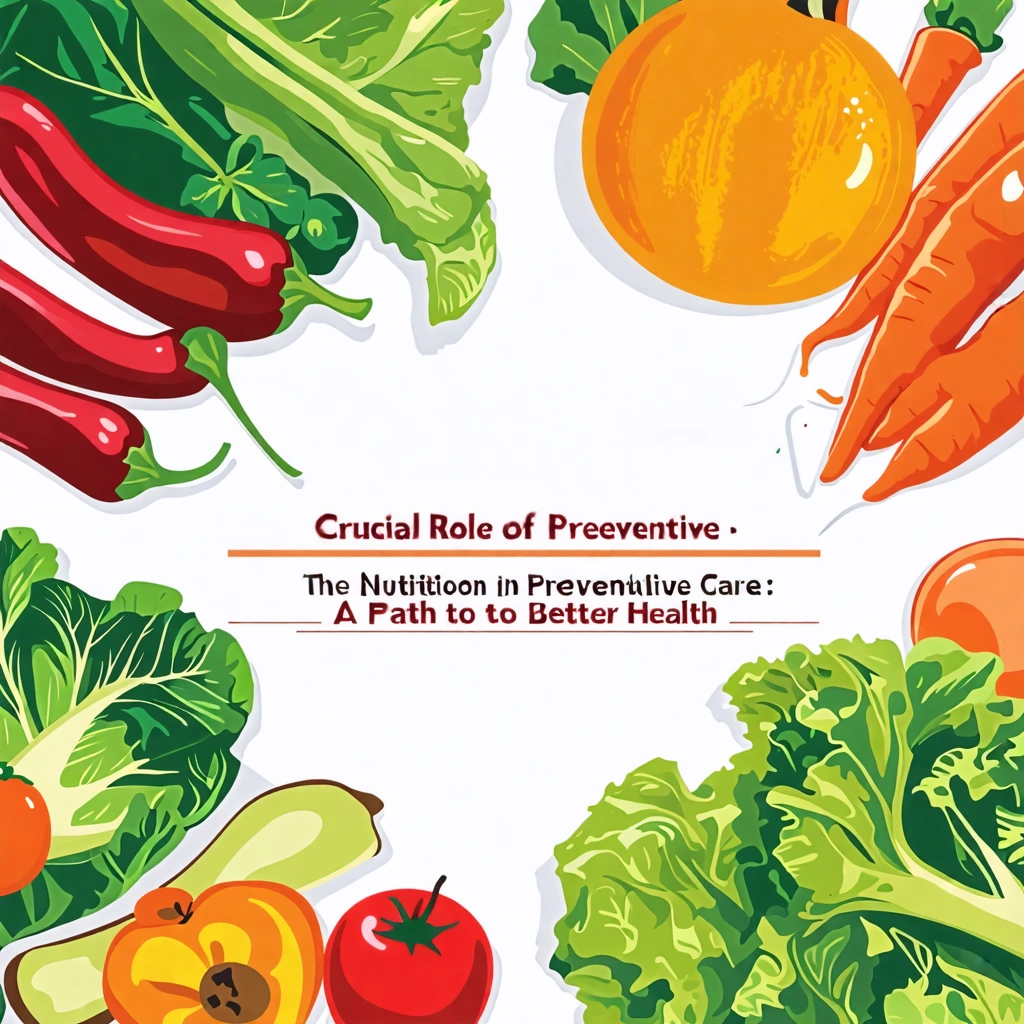
The Crucial Role of Nutrition in Preventive Care: A Path to Better Health
Takeaways: Nutrition is fundamental in preventive care, helping to maintain health and reduce the risk of diseases. A balanced diet rich in fruits, vegetables, whole grains, and lean proteins can significantly impact overall well-being. Small lifestyle changes can lead to profound health benefits, making nutrition a key player in disease prevention.
In today’s fast-paced world, we often overlook the significance of nutrition in our daily lives. However, understanding its role in preventive care is essential for maintaining health and enhancing quality of life. This article delves into the important connection between nutrition and preventive health strategies, outlining how a balanced diet can help prevent chronic diseases and promote longevity.
Understanding Preventive Care

Good nutrition involves consuming a variety of foods that provide essential nutrients needed for optimal health. A well-balanced diet supports the body’s functions and plays a crucial role in disease prevention. Numerous studies have shown that individuals who maintain a healthy diet are at a lower risk for chronic conditions such as obesity, heart disease, diabetes, and certain cancers.
The Impact of Nutrition on Chronic Disease Prevention

A diet rich in whole foods—such as fruits, vegetables, whole grains, lean proteins, and healthy fats—can significantly reduce the risk of developing chronic diseases. For example, fruits and vegetables are packed with antioxidants, vitamins, and minerals that help combat oxidative stress and inflammation, two key contributors to chronic disease development.
Moreover, whole grains provide essential fiber, which aids in digestion and helps maintain healthy blood sugar and cholesterol levels. Lean proteins, such as fish and poultry, contribute to muscle health and overall metabolic function, while healthy fats from sources like avocados and nuts support heart health.
Practical Tips for Incorporating Nutrition into Preventive Care
Incorporating good nutrition into daily life doesn’t have to be daunting. Here are some practical tips to help you make healthier choices:
- Plan Your Meals: Take time each week to plan your meals. This helps you make informed choices and avoid the temptation of unhealthy options.
- Focus on Whole Foods: Aim to fill your plate with whole, unprocessed foods. The fewer ingredients a food has, the better it is for you.
- Stay Hydrated: Water is crucial for overall health. Aim to drink at least eight glasses of water a day to maintain hydration.
- Practice Portion Control: Be mindful of portion sizes to prevent overeating. Using smaller plates can help with this.
- Educate Yourself: Knowledge is power. Learn about the nutritional value of foods and how they contribute to your health.
- Seek Professional Guidance: Consult a registered dietitian or nutritionist for personalized advice and meal plans.
Conclusion
Nutrition is a powerful tool in the realm of preventive care. By making informed choices about what we eat, we can significantly reduce the risk of chronic diseases and enhance our overall well-being. Embracing a healthy diet is not just about avoiding illness; it’s about thriving and enjoying life to the fullest. Start today by making small, sustainable changes to your eating habits, and witness the positive impact on your health.







